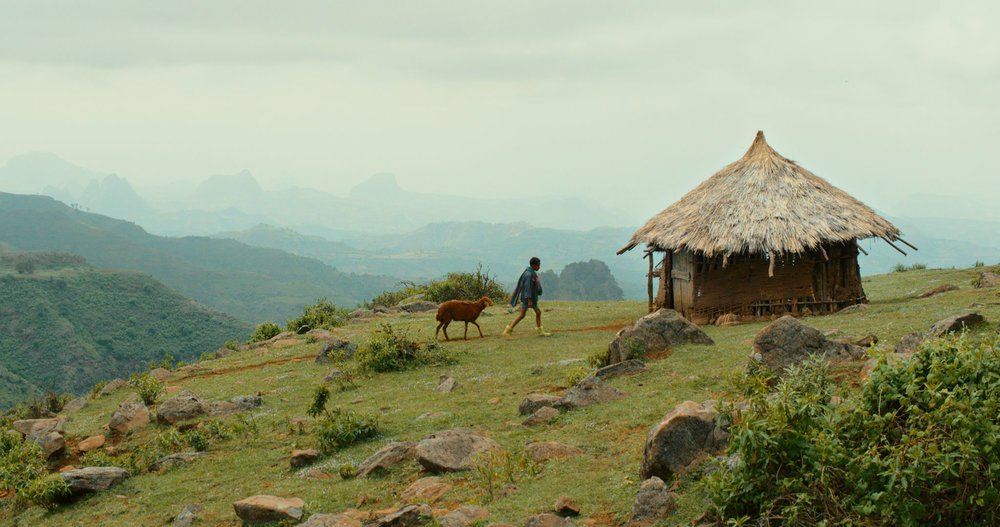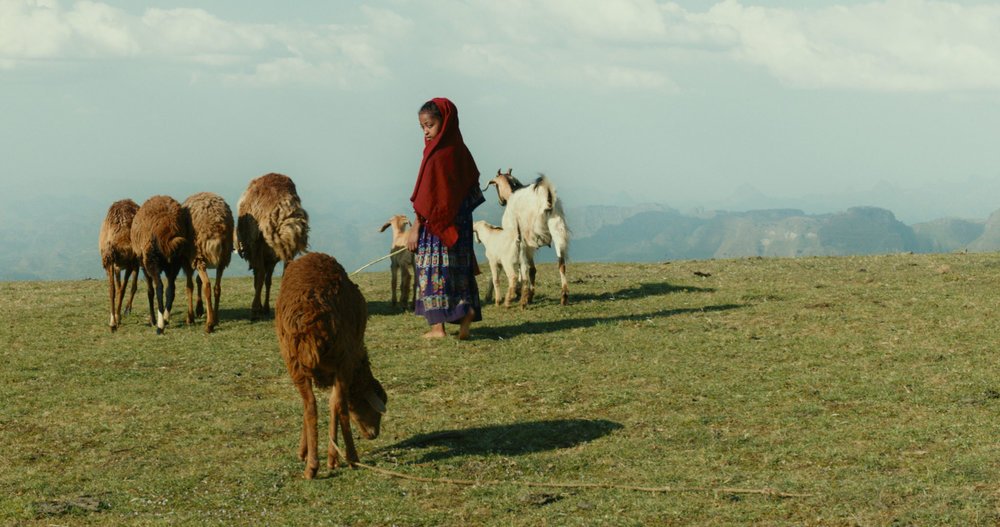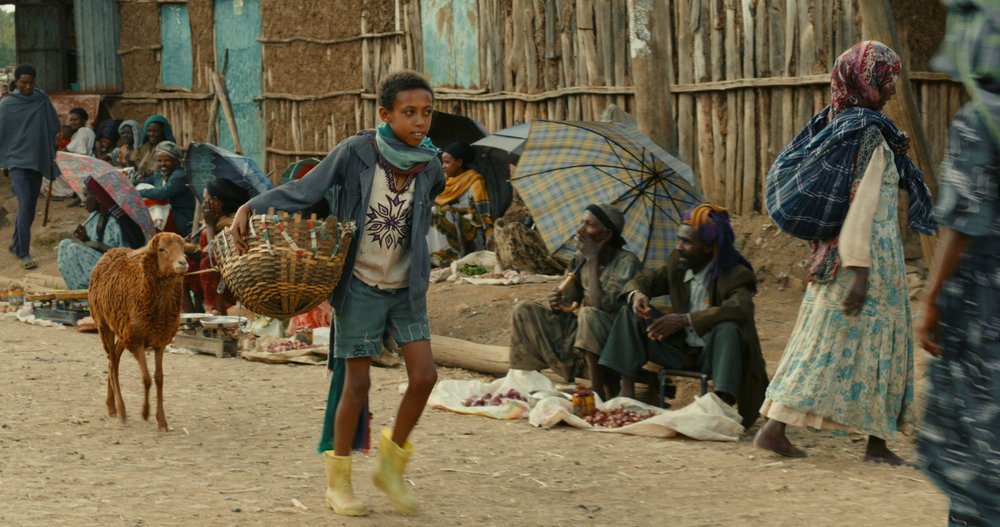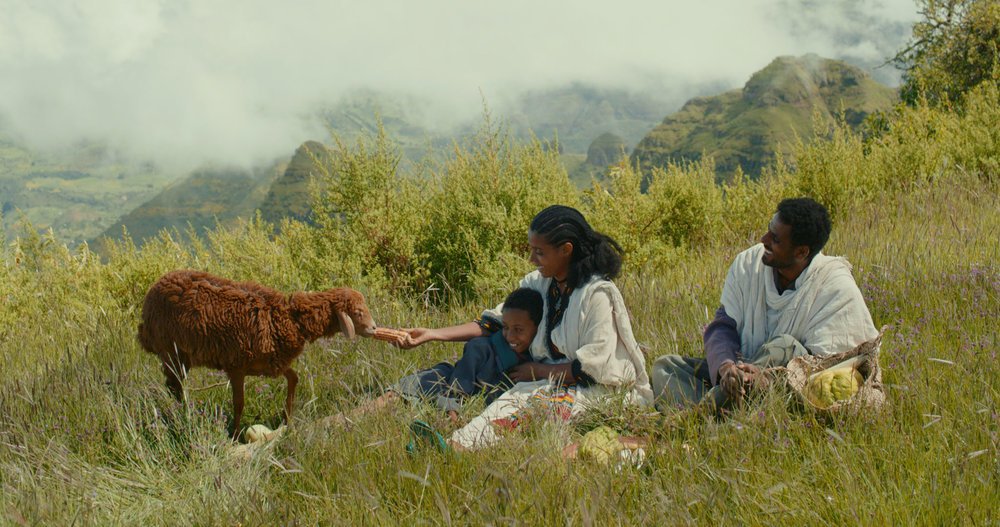Yared Zeleke
Lamb, Yared Zeleke (2015)
Yared Zeleke is an Ethiopian screenwriter, producer, editor and director. His debut feature, Lamb, was the first Ethiopian film to premiere in Cannes' Official Selection, and the third film the country has submitted to the Foreign Language Oscar.
In an exclusive interview with Filmatique, Yared Zeleke discusses displacement and diaspora in Ethiopia, the country's legacy of religious coexistence, a period of awakening on the African continent and his next project.
//
FILMATIQUE: Lamb is a very distinct story of a young boy who is forced to leave his home, to deal with loss and grief, on his way to growing up. What about this story was personal for you? Do you think displacement on the way to maturity is a common experience in Ethiopia?
YARED ZELEKE: Although there is more political stability in Ethiopia today compared with when I grew up, the country remains economically fragile. The combination of population pressure, hyper-capitalism and a stagnant standard of living continues to cause all sorts of upheavals for families. That includes the separation of kids from their parents, be it vast rural to urban migration (that is also happening on a continental scale) or immigration abroad to find a more sustainable income. These realities are the reasons why Lamb is very much about Ethiopia today as it is an examination of my own past.
FLMTQ: One of Lamb's great strengths is the myriad women who surround Ephraim, all presented as very nuanced and developed characters. Did you consciously seek to surround Ephraim by strong women? If so, why?
YZ: Clever, funny and beautiful Ethiopian women raised me. The film is homage to them. Despite the patriarchy in many aspects of Ethiopian culture, there have always been strong-willed women who held families and even the nation together.
Emama represents those women from the past. Tsion represents the Ethiopian woman of the future. She wants an education before being married, yet she does not necessarily throw away all of her identity.
Lamb, Yared Zeleke (2015)
FLMTQ: A preoccupation with food— whether it be drought and famine in Ephraim's father's home, or the boy's love of cooking in the home of his relatives— serves as a subtle thread throughout the film. How did you develop this concept as a means to address signature issues in Ethiopian society in a more understated manner?
YZ: Family and food as the embodiment of home also runs throughout the story. Ethiopia is engraved in the world's collective memory because of the famine in the 1980s. The question of food and its paradoxes, therefore, is an important element in the narrative.
Ephraim lost his mother to famine; he is always in search of or stealing food to feed his beloved lamb; and he applies his cooking skills (going against customary gender roles) to save his lamb and go back to his homeland. Hence, food also symbolizes survival and love. While his relatives view the lamb as the only source of 'meat for the holiday,' Ephraim sees the lamb as his only friend.
FLMTQ: With the lush, verdant hills and vast mountain ranges, nature seems to be another character in the film. How did you seek to immerse the audience in the Ethiopian landscape, and why do you consider nature to be so important?
YZ: I can answer this question of landscape as a character via numbers: 85% of Ethiopians today are subsistence farmers. They live, struggle and thrive being close to mother nature, with their hands in touch with the country's soil. 70% of Africa's mountains are in Ethiopia.
We, Ethiopians— our (Judeo-Christian) culture; (non-colonized) history; (Afro-Asiatic) languages; and even our distinctly diverse looks— are all shaped by the mountains.
FLMTQ: In Lamb, members of many religions— be they Jews, Christians, or Muslims— live together without much conflict. What is the religious history of Ethiopia, and why do you believe people of many faiths are able to coexist?
YZ: Anthropologists have unearthed pre-Talmudic Jewish practices and rituals throughout Ethiopia— dating back thousands of years. Most Ethiopians converted to Christianity in 34 AD, before Europe. Then Islam came, primarily of a Sufi, or spiritual, origin.
We have co-existed with these Abrahamic religions long enough to live in relative peace and harmony. Many of us are inter-married and identify as Ethiopian before anything else, including my family. I'm very proud of this fact, as are other Ethiopians, and hope the country remains united despite growing tensions happening in other parts of the world.
There isn't much good news coming out of Africa, which is too bad because some things work really well. We could be a role-model for others.
Lamb, Yared Zeleke (2015)
FLMTQ: Lamb was the first Ethiopian film to premiere in Cannes' Official Selection. What was the reception like?
YZ: Cannes lives up to its reputation— just amazing!
I was told my film was the only film from the Africa that year. Even though I only come from one country, or culture, it's still an honor to represent a great continent.
FLMTQ: What challenges did you encounter shooting in Ethiopia? How was the experience overall?
YZ: Where can I begin? A film with not only a boy and a lamb— one of the least intelligent mammals— but several children and animals, in rural Ethiopia, with little to no electricity, almost two miles above sea level and with a people who are very poor and very proud at the same time.
Like any film, each and every process was just an absolute challenge in every way. But the most difficult for me was the Ethiopian bureaucracy. One can control most factors of filmmaking, more or less, but bureaucracy is beyond me. The ultimate threat being that your project is in a constant state of danger of being shut down over the smallest issue.
The authorities did, however, allow us to make the film. We also obtained sponsorship from Ethiopian Airlines, which is government-owned. The airline moreover provided an enormous amount of logistical support with the transportation of both crew and, especially, equipment to and within the country. Without this help, we certainly would not have been able to make the film on time.
What I learned from the experience can be summarized by one of the traditional female names in Amharic which is also the title of my first documentary project— "Tigist Means Patience." To make a meaningful film in a place like Ethiopia, you will need an enormous amount of patience and time. Be prepared to invest years of your life there. Be prepared for a lot of explaining. Be prepared for a lot of suspicion. Both the government and people are sensitive about their image, and rightly so, after decades of bad publicity, which has been primarily about political upheavals, war and famine, with nothing being told about the positive aspects of the country.
I also discovered many new things. It is a very interesting transitional period right now as the nation fast-forwards into the future, leaving its traumatic past behind. The economy's booming and members of the diaspora who once risked everything to escape are coming back to rebuild. There is an awakening taking place in Ethiopia, as in the rest of the continent. This homecoming is a time for Africans to redefine who we are to the world and, especially, to ourselves. Re-appropriating our memory and what it means to be a citizen.
Being a filmmaker at this point in Ethiopia's (3,000 year) history is, therefore, extremely important. The entire process of making Lamb was within the conditions of a country trying desperately to pull itself out of poverty and transcend into something new. I am, of course, very proud to be part of that wave of change.
Lamb, Yared Zeleke (2015)




